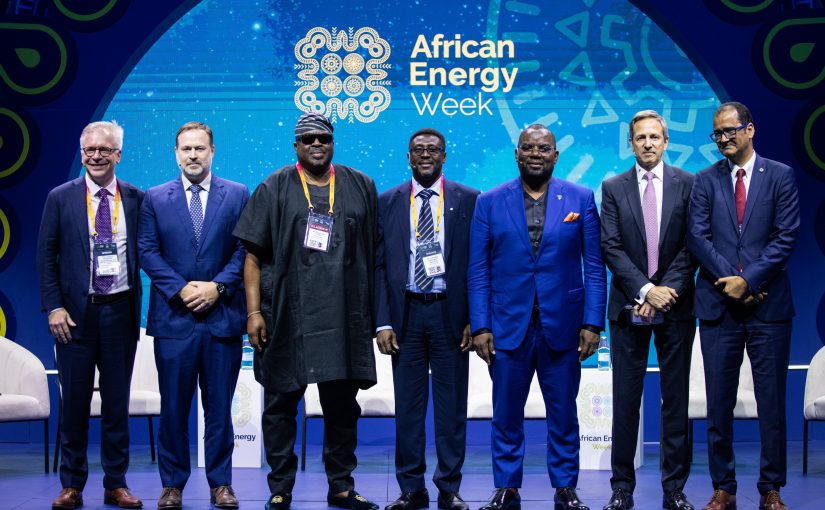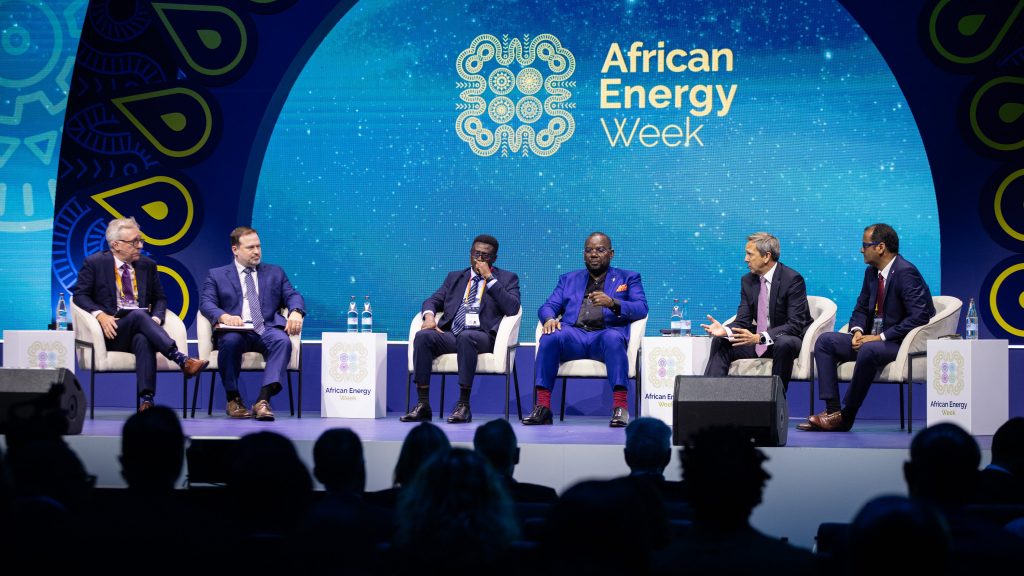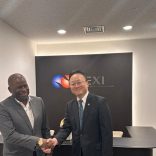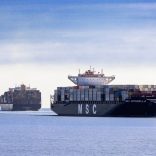Mozambique-Zimbabwe Pipeline Company to increase fuel transport capacity
African Energy Week: Major LNG projects in Mozambique, Nigeria edge closer to FID amid tight global market

Arne Gibbs (second from the left), Chair of Mozambique Rovuma Ventures at ExxonMobil, said the Rovuma LNG project is targeting FID next year. 'From my perspective, the stars are aligning for Rovuma, and ExxonMobil is positive about Mozambique.' [Photo: African Energy Week]"
Major African LNG projects in Mozambique and Nigeria are edging closer to FID, with developers emphasizing progress on commercial, regulatory and design factors that will help these projects compete globally.
Speaking at Africa Energy Week 2025, Arnie Gibbs, Chair of Mozambique Rovuma Ventures at ExxonMobil, said the Rovuma LNG project is targeting FID next year. “From my perspective, the stars are aligning for Rovuma, and ExxonMobil is positive about Mozambique,” he said. Gibbs highlighted efforts to boost local content and economic development in Cabo Delgado and noted the project is being redesigned to be greener and more competitive, with 12 modules of 1.5 MTPA each.
In Nigeria, Julius Rone, CEO of UTM Offshore, provided an update on the $5 billion UTM FLNG project, saying it is on track for FID with Vitol lined up as an off-taker and ongoing collaboration with Seplat. “We’re very close to closing with Seplat and concluding the [Sale and Purchase Agreement] with Vitol,” he said, noting that the FLNG facility will supply LPG to domestic markets while exporting LNG to Europe and Asia.

According to Olakunle Osobu, Deputy Managing Director at Nigeria LNG (NLNG), Africa currently supplies just under 10% of global LNG trade, but ongoing projects could double that contribution over the next decade. Nigeria remains a top exporter, with NLNG capacity set to rise from 22 million to 30 million MTPA. Osobu cited projects across Nigeria, the Republic of Congo, Angola, Mozambique, Mauritania and Senegal, which together represent over 45 MTPA potential LNG supply. “If we succeed, we could reach 120 MTPA by 2035.”
Timothy Fakrogha, GM Commercial at NLNG, noted shifting market dynamics, including a move toward short-term contracts and more flexible supply portfolios. “There is increased competition to be a secure source of LNG,” he said, adding that African projects can also compete by offering lower-carbon LNG and strong ESG credentials.
Meanwhile, Federico Petersen, Chief Commercial Officer, Golar LNG, stated, “Finding cheap gas is particularly important, as well as identifying the assets and getting the right partners.” He added, “What governments can do is support the companies from a tax and PSC perspective, as well as access to ForEx, so that the project becomes robust.”













Leave a Reply
Be the First to Comment!
You must be logged in to post a comment.
You must be logged in to post a comment.